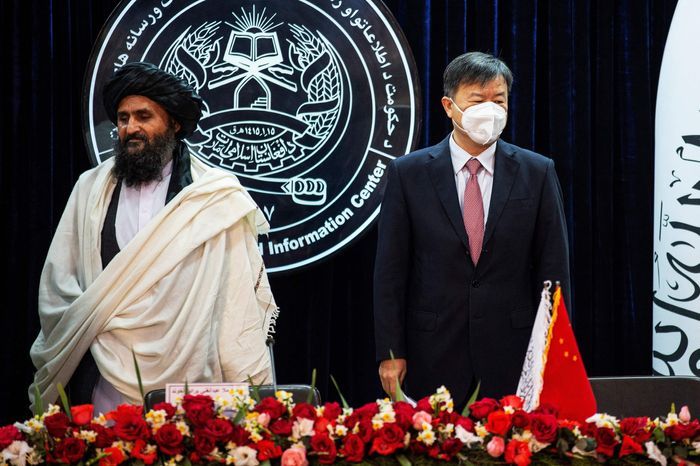Afghanistan, Chinese Company Sign Oil Extraction Deal
On Thursday, the Taliban government signed an agreement with Chinese company Xinjiang Central Asia Petroleum and Gas Co. Ltd. (CAPEIC) to develop an oil-and-gas field in the Amu Darya basin in northern Afghanistan over the next three years.

Facts
- On Thursday, the Taliban government signed an agreement with Chinese company Xinjiang Central Asia Petroleum and Gas Co. Ltd. (CAPEIC) to develop an oil-and-gas field in the Amu Darya basin in northern Afghanistan over the next three years.
- The Taliban's acting Minister of Mines and Petroleum, Shahabuddin Delawar, said the oil extraction project covering a 4.5K-square-kilometer region will create 3K jobs for Afghans as CAPEIC has agreed to process the oil in Afghanistan rather than ship it overseas.
- The Chinese firm will invest $150M per year in Afghanistan and then up it to $540M in three years under the 25-year contract, which is the first major commodities extraction deal the Taliban has reached with a foreign company since taking over in 2021.
- Oil will be pumped from the Amu River Oil Basin, which holds more than 80M barrels of crude oil, with Kabul receiving a 15% royalty fee for the oil production that will begin at 1K tons per day, eventually hitting 20K tons.
- This deal comes as Afghanistan's international funds have remained largely frozen since the Taliban's return to power as the new government – which hasn't officially been recognized by any country – has been criticized for allegedly marginalizing minorities and women.
- Before the Taliban takeover in 2021, Chinese state-owned China National Petroleum Corp. (CNPC) had a contract with the elected government of Afghanistan to extract oil from Amu Darya.
Sources: Wall Street Journal, Breitbart, Cgtn, Daily Caller, and CNN.
Narratives
- Pro-establishment narrative, as provided by Diplomat. This deal is almost a mirror image of the one signed in 2011, which fades into memory due to both security problems involving terrorist insurgents and logistical issues. As the Taliban still hasn't proved it can contain terrorist attacks nor that it can successfully drill its resource-rich land, excitement over this deal should be quelled until it's proven plausible.
- Establishment-critical narrative, as provided by Bakhtar. This oil extraction contract is crucial for the economic growth and self-sufficiency of Afghanistan, which is estimated to be sitting on unexploited resources worth more than $1T with the potential to create thousands of jobs and promote development. Following international standards, this deal also illustrates the growing interaction between Beijing and Kabul.






